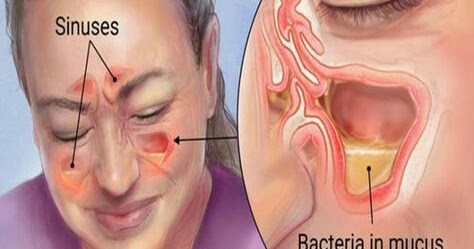
Most people who have chronic sinus infection symptoms don't really understand why the symptoms keep coming back
They either just ignore them or try to self diagnose. Here is a quick list of common recurring sinus infection symptoms that you need to be aware of.
Chronic sinus infection requires a doctor's diagnosis, and in some cases it can take more medical treatment than even acute sinus infection. Here are some common recurring bacterial sinus infection symptoms: Acute sinus infection is usually caused by a viral infection, and there are usually no specific symptoms associated with it. Common recurring bacterial sinus infection symptoms include fever, headaches, nasal discharge, nose bleeds and runny nose.
In a more severe case of chronic sinus infection, a patient may suffer from chronic sinus pain, nasal discharge, coughing, sneezing and sometimes fever. In some people the sinuses become infected. They can bleed if there is an infection or they can become swollen. These symptoms can also result from other health problems. Other symptoms may be related to allergies and nasal congestion.
The most common and severe sinus infection symptoms are the ones that result in a person losing his sense of smell, feeling tired and having difficulty concentrating. It can cause trouble breathing and cause dizziness, and in extreme cases the person can even pass away due to the infection. Some people suffer from a severe infection and can't go to sleep. Others have no symptoms at all.
You should always ask a doctor for advice on how to treat your sinus infection symptoms. If you're not sure if you have a sinus problem, you might need to see a specialist such as an ENT (ear, nose and throat) doctor or an otolaryngologist. Your doctor will be able to tell you whether the symptoms are caused by a sinus problem or not.
The best way to treat any sinus infection symptoms is to stay as relaxed as possible. Don't work when you're experiencing symptoms. Take breaks and try to relax your muscles.
A common sinus infection symptom is the difficulty of breathing. It can also lead to coughing, sore throat inflammation and fever.
If you have a persistent sinus infection symptom or have a severe sinus infection you should see your doctor as soon as possible. Don't wait until it is too late.

Some common treatments include decongestants and nasal sprays for sinus infection symptoms. They can make symptoms less noticeable and reduce the frequency and severity of them.
Antibiotics are another option for treating sinus infection symptoms
They will shorten the duration and therefore, the intensity of the symptoms. They will also make you less susceptible to developing an infection in the first place.
Inhalers are another option for treating sinus symptoms. They spray into the sinuses to clear up nasal congestion.
Antibiotics are also used for sinus infections. They kill the bacteria that are causing the infection. They also kill the germs in the nasal cavities that cause the infection.
Homeopathic remedies can also help with sinus infections. Some of these remedies include using nasal drops, applying drops directly to the sinuses and even chewing on herbs and supplements that help relieve nasal congestion.
Over-the-counter medications and over-the-counter decongestants can also treat some sinus infection symptoms. These medications will usually contain antihistamines that reduce congestion. You may also find that these medications contain antibiotics.
Prescription medications can also be used for sinus infections. If you don't want to take antibiotics, they can also help you deal with other problems that may be causing your symptoms. You should always discuss this option with your doctor before taking any type of medication.
Keeping a cold compress on the nose is another option for clearing sinus congestion. It can stop the congestion from happening. A cold compress can also be helpful in getting rid of some of the soreness, swelling and inflammation that can be associated with a sinus infection.
About the author